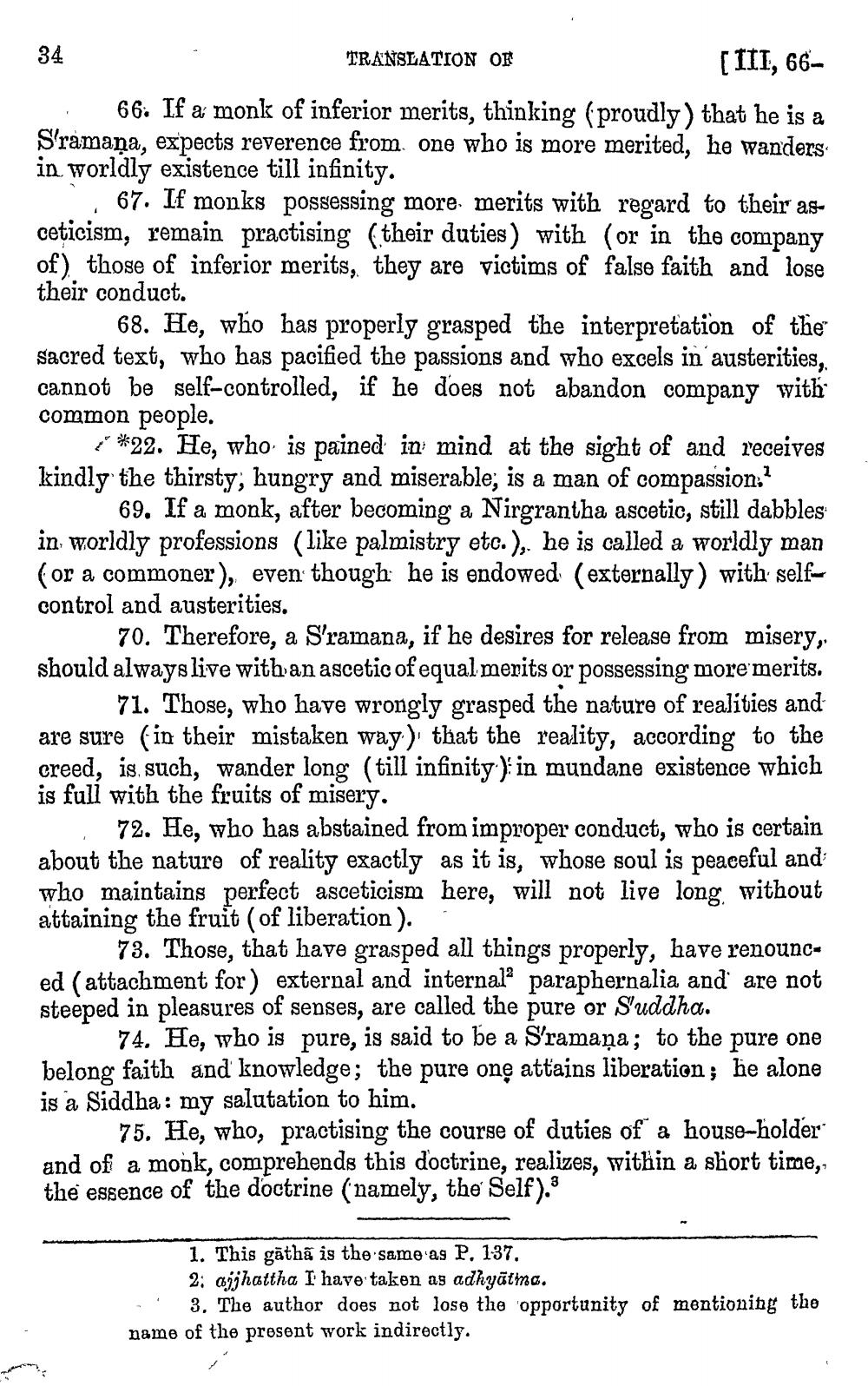________________
34
TRANSLATION OF
[II1, 6666. If a monk of inferior merits, thinking (proudly) that he is a S'ramaņa, expects reverence from one who is more merited, he wanders in worldly existence till infinity.
67. If monks possessing more merits with regard to their asceticism, remain practising (their duties) with (or in the company of) those of inferior merits, they are victims of false faith and lose their conduct.
68. He, who has properly grasped the interpretation of the Sacred text, who has pacified the passions and who excels in austerities, cannot be self-controlled, if he does not abandon company with common people.
*22. He, who is pained in mind at the sight of and receives kindly the thirsty; hungry and miserable; is a man of compassion:
69. If a monk, after becoming a Nirgrantha ascetic, still dabbles in worldly professions (like palmistry etc.), he is called a worldly man (or a commoner), even though he is endowed (externally) with selfcontrol and austerities.
70. Therefore, a S'ramana, if he desires for release from misery, should always live with an ascetic of equal merits or possessing more merits.
71. Those, who have wrongly grasped the nature of realities and are sure (in their mistaken way) that the reality, according to the creed, is such, wander long (till infinity) in mundane existence which is full with the fruits of misery.
72. He, who has abstained from improper conduct, who is certain about the nature of reality exactly as it is, whose soul is peaceful and who maintains perfect asceticism here, will not live long, without attaining the fruit (of liberation ).
73. Those, that have grasped all things properly, have renounced (attachment for) external and internal paraphernalia and are not steeped in pleasures of senses, are called the pure or Suddha.
74. He, who is pure, is said to be a S'ramaņa; to the pure one belong faith and knowledge; the pure one attains liberation ; he alone is a Siddha: my salutation to him.
75. He, who, practising the course of duties of a house-holder and of a monk, comprehends this doctrine, realizes, within a short time, the essence of the doctrine (namely, the Self).
1. This gātha is the same as P. 137.
2: ajjhottha I have taken as adhyātma. . 3. The author does not lose the opportunity of mentioning the name of the present work indirectly.




